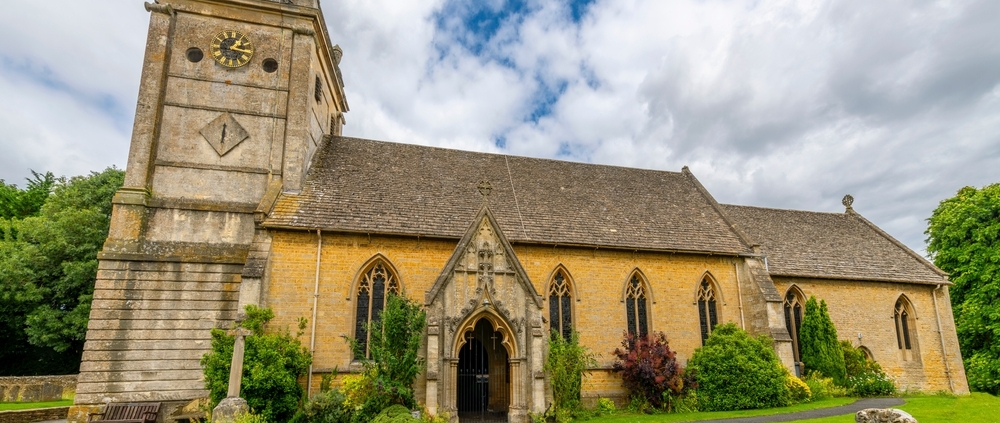Top 10 Reasons Why Blacks and Native Americans Have Historically Criticized the Anglican Church
By Esther Claudette Gittens
The Anglican Church, known as the Church of England and its affiliated global entities, has played a significant role in shaping colonial and imperial history. Its legacy is intertwined with systems of oppression and assimilation that have disproportionately impacted Black and Native American communities. Below, we explore ten key historical points that critics cite as reasons these communities have expressed hesitancy or resistance toward the Anglican Church.
- Role in Colonialism and Imperialism
The Anglican Church was an integral part of British colonial expansion, often functioning as a spiritual arm of imperialism. Missionaries worked alongside colonial administrators to establish British cultural and political dominance, frequently resulting in the erasure of indigenous traditions and African identities. Conversion was often tied to assimilation into British norms, leaving little room for cultural diversity.
- Citation: Comaroff, Jean, and John Comaroff. Of Revelation and Revolution: Christianity, Colonialism, and Consciousness in South Africa. University of Chicago Press, 1991.
- Support for Slavery and the Transatlantic Slave Trade
The Anglican Church was complicit in the transatlantic slave trade, particularly through the Society for the Propagation of the Gospel in Foreign Parts (SPG). The SPG owned and operated plantations worked by enslaved Africans in the Caribbean, using the profits to fund its missionary activities. Many Anglican clergy also owned enslaved people and justified slavery through distorted interpretations of scripture.
- Citation: Hochschild, Adam. Bury the Chains: Prophets and Rebels in the Fight to Free an Empire’s Slaves. Houghton Mifflin Harcourt, 2005.
- Marginalization of Black Clergy and Congregations
Even after the abolition of slavery, the Anglican Church often marginalized Black clergy and congregations. In the U.S. Episcopal Church, Black clergy faced systemic barriers to ordination, and Black congregations were segregated or given limited autonomy. This lack of equity contributed to a sense of alienation among African Americans.
- Citation: Allen, Richard. The Life, Experience, and Gospel Labours of the Rt. Rev. Richard Allen. 1833.
- Land Seizures from Native Americans
The Anglican Church played a significant role in facilitating land dispossession among Native Americans. Missionary efforts were often linked to policies of displacement, as Native lands were taken to establish churches, settlements, and schools. Anglican leaders frequently supported treaties and policies that undermined indigenous sovereignty.
- Citation: Calloway, Colin G. The Indian World of George Washington: The First President, the First Americans, and the Birth of the Nation. Oxford University Press, 2018.
- Residential Schools and Forced Assimilation
Anglican missionaries were key participants in residential school systems in Canada and the United States. These schools forcibly removed Native children from their families, aiming to “civilize” them by erasing their languages, cultures, and spiritual practices. Physical, emotional, and sexual abuse were rampant in these institutions, and their legacy has left lasting trauma in Native communities.
- Citation: Truth and Reconciliation Commission of Canada. Final Report. 2015.
- Resistance to Black Liberation Movements
The Anglican Church’s stance during critical moments of Black liberation, such as the abolition of slavery and the Civil Rights Movement, was often ambiguous or passive. While individual Anglicans supported these causes, the institutional Church frequently lagged in addressing systemic racism or advocating for social justice.
- Citation: Massingale, Bryan N. Racial Justice and the Catholic Church. Orbis Books, 2010.
- The Doctrine of Superiority
As the established church of the British Empire, Anglicanism often promoted a sense of cultural and religious superiority. This doctrine justified the treatment of non-Christian peoples, particularly Africans and Native Americans, as “uncivilized” and in need of salvation through conversion and assimilation into British norms.
- Citation: Pagden, Anthony. The Burdens of Empire: 1539 to the Present. Cambridge University Press, 2015.
- Limited Advocacy for Reparations
Despite its historical complicity in slavery and colonialism, the Anglican Church has been slow to address calls for reparations. While some dioceses have taken steps to acknowledge their involvement in systemic injustices, critics argue that these efforts are insufficient and fail to address the full scope of the harm caused.
- Citation: Horne, Gerald. The Counter-Revolution of 1776: Slave Resistance and the Origins of the United States of America. NYU Press, 2014.
- Suppression of Indigenous Spiritual Practices
Anglican missionary efforts often sought to replace indigenous spiritual practices with Christian doctrine, viewing traditional beliefs as pagan or inferior. This suppression led to a significant loss of cultural and spiritual diversity among Native communities, many of whom were pressured to abandon their ancestral traditions.
- Citation: Mbiti, John S. African Religions and Philosophy. Heinemann, 1969.
- Legacy of Structural Racism
The Anglican Church, like many other institutions, continues to grapple with structural racism within its hierarchy and congregations. Critics argue that its historical entanglement with systems of oppression has not been fully addressed, leaving many Black and indigenous Anglicans feeling excluded or undervalued.
- Citation: Douglas, Kelly Brown. Stand Your Ground: Black Bodies and the Justice of God. Orbis Books, 2015.
Conclusion
The Anglican Church’s history is deeply intertwined with colonialism, slavery, and cultural assimilation. For Black and Native American communities, this legacy has led to feelings of alienation, mistrust, and critique. While the Church has made strides in recent decades to acknowledge its historical wrongs and advocate for social justice, many argue that these efforts fall short of the meaningful reparations and structural changes needed to address past harms.
It is important to note that these criticisms are not universally held. Many individuals within Black and Native American communities find spiritual fulfillment and a sense of belonging within the Anglican Church. However, understanding the historical context is essential for fostering reconciliation and ensuring that the Church serves as a place of inclusion and justice moving forward.
This analysis aims to promote dialogue and reflection, acknowledging the Church’s historical shortcomings while encouraging continued efforts toward equity and healing.





Leave a Reply
Want to join the discussion?Feel free to contribute!